Question And Answer
Publications
Articles, publications, books, tools and multimedia features from the U.S. Institute of Peace provide the latest news, analysis, research findings, practitioner guides and reports, all related to the conflict zones and issues that are at the center of the Institute’s work to prevent and reduce violent conflict.
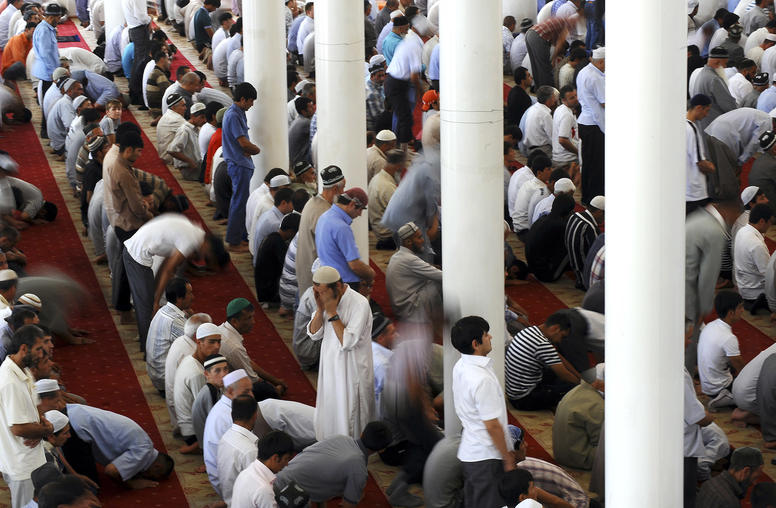
To Help Central Asia, Engage with Muslim Civil Society
Kazakhstan’s violent upheaval this month underscores that governments and international organizations need to more effectively help Central Asia’s 76 million people build responsive, effective governance across their five nations. Mass protests or communal violence also have struck Uzbekistan, Kyrgyzstan and Tajikistan in recent years. As the United States, allied governments and international institutions seek ways to promote nonviolent transitions toward more stable, democratic rule, new research suggests that they explore for partners in an often-ignored sector—Central Asia’s active and disparate Muslim civil society.
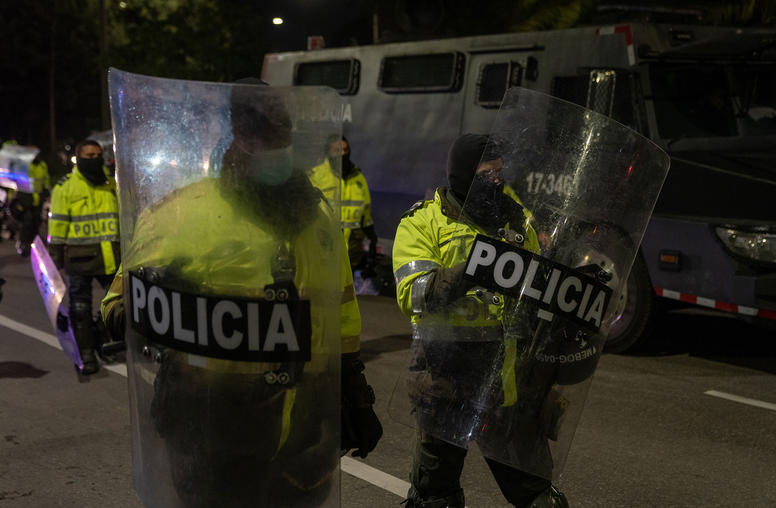
Colombia Police Reform: The Critical Need to Include Rural Forces
The Colombian government, seeking to reform its National Police in a time of security challenges and mass protests, has focused on big-city units that sit in the national spotlight. While the reform efforts are generally praiseworthy, the emphasis on urban areas creates the risk of losing sight of the country’s rural regions — places where guerrillas and other armed actors hold sway, and the fate of peace efforts will ultimately be determined. The resolve and capacity of rural police and courts to meet the needs of citizens in these zones will be critical to achieving meaningful and lasting peace.
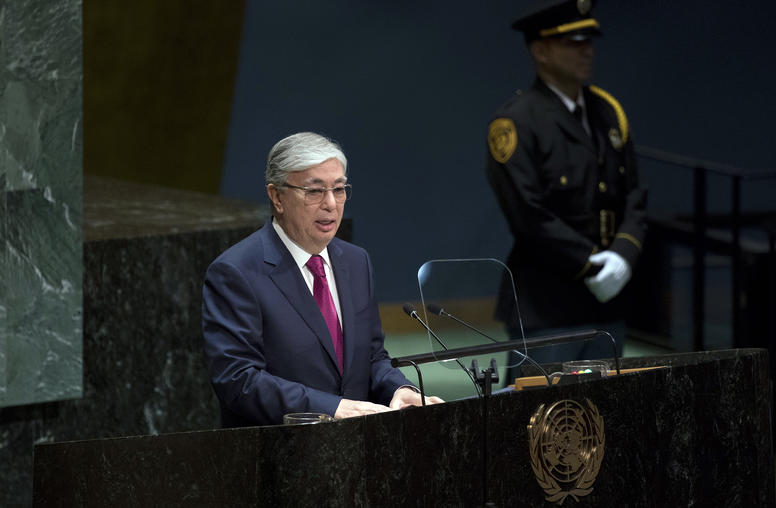
What to Make of Kazakhstan’s Seemingly Sudden Unrest
What started last week as a protest against fuel price increases has quickly turned into a nationwide movement that is taking aim at Kazakhstan’s elite political and economic leaders — in particularly, the semi-retired former President Nursultan Nazarbayev, whose continued role in political affairs has become a focal point of popular discontent. The demonstrations have become increasingly violent in recent days, as protesters clash with Kazakh police and Russian military personnel have been brought in at the request of Kazakhstan’s president. USIP’s Gavin Helf and Donald Jensen discuss where these explosive protests came from, Moscow’s increasing role in the crisis and where Kazakhstan goes from here.

Keith Mines on the Situation in Venezuela
Despite a “near-total loss of faith in the political process” going into 2022, USIP’s Keith Mines says Venezuelans have not lost hope for a better future — and that underneath the polarization and dissatisfaction, you can “find a vision for the country that is shared by most Venezuelans.”
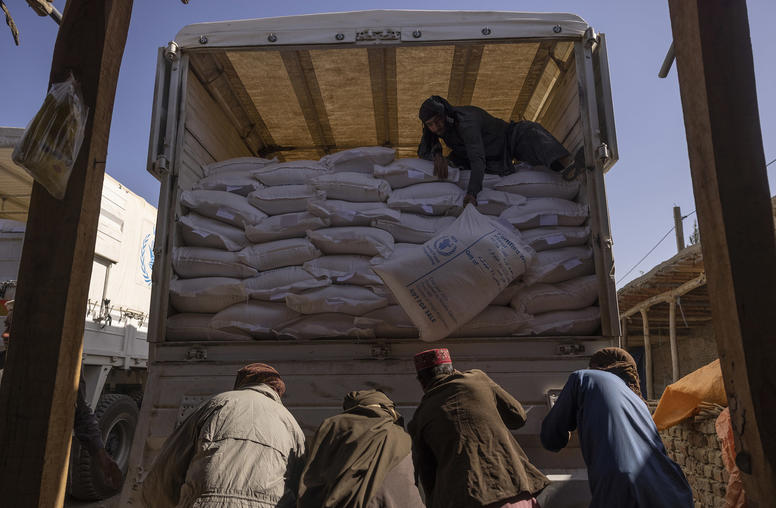
How to Mitigate Afghanistan’s Economic and Humanitarian Crises
Afghanistan is teetering on the brink of a famine and economic collapse. Millions face the prospect of falling into poverty, starvation and even death. On December 22, the U.S. Treasury Department and United Nations Security Council provided sanctions relief for humanitarian assistance flowing to Afghanistan. USIP’s William Byrd says these actions are welcome but insufficient and discusses what more can be done to ensure the delivery of essential, life-saving aid to the Afghan people.

Donald Jensen on the 30th Anniversary of the Soviet Union’s Fall
Three decades after President Mikhail Gorbachev resigned, beginning the dissolution of the Soviet Union, USIP’s Donald Jensen says, “The collapse is still continuing. It didn’t fall apart at once … and in many ways [it] shapes our relationship with Eastern Europe and Russia today.”

Brian Harding on Secretary Blinken’s Trip to Southeast Asia
While China’s influence in Southeast Asia is inevitable, the region welcomed Secretary Blinken’s recent trip as a counterweight to Beijing, says USIP’s Brian Harding: “[The region] wants balance, which means they want the United States to be as engaged as possible.”

Elie Abouaoun on Libya’s Elections
With the vote likely to be postponed, USIP’s Elie Abouaoun says frustrations are high over Libya’s political and economic stagnation as the international community tries to “generate a new political agreement … just to make sure the elections can happen without a major outbreak of violence.”
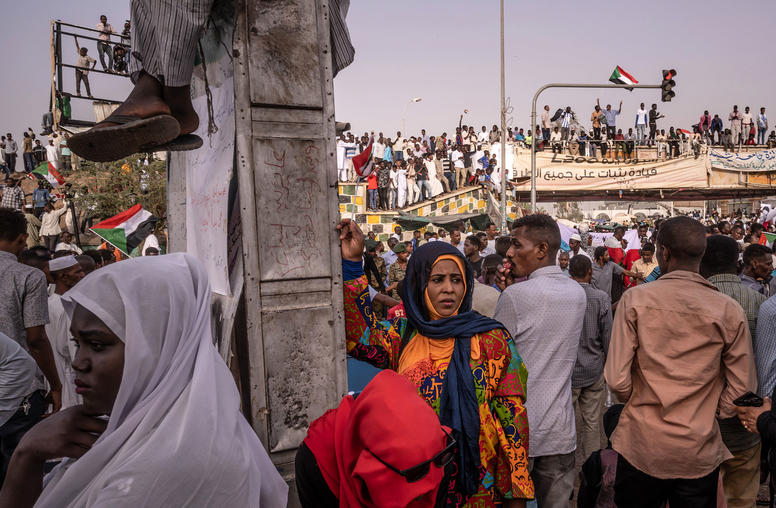
إعادة عملية الانتقال السياسي في السودان إلى مسارها الصحيح
قد حكم الجيش السودان لمدة 53 عامًا من أصل 66 عامًا مضت منذ حصوله على الاستقلال عام 1955. وفي 25 أكتوبر/تشرين الاول استولى الجيش، في حركة مألوفة على السلطة مما ألقى بظلال من الشك على التحول السياسي الذي من شأنه أن يؤدي إلى حكم مدني. وتم حل القيادة المدنية واعتقال قادتها وإعلان حالة الطوارئ. واستشهد قائد الانقلاب الجنرال عبد الفتاح برهان بمبررات بالية لتبرير أفعاله. وفي وقت لاحق أعيد رئيس الوزراء المخلوع عبد الله حمدوك إلى رئاسة حكومة تكنوقراطية إلى أن يحين موعد الانتخابات المقرر إجراؤها في يوليو/تموز 2023.
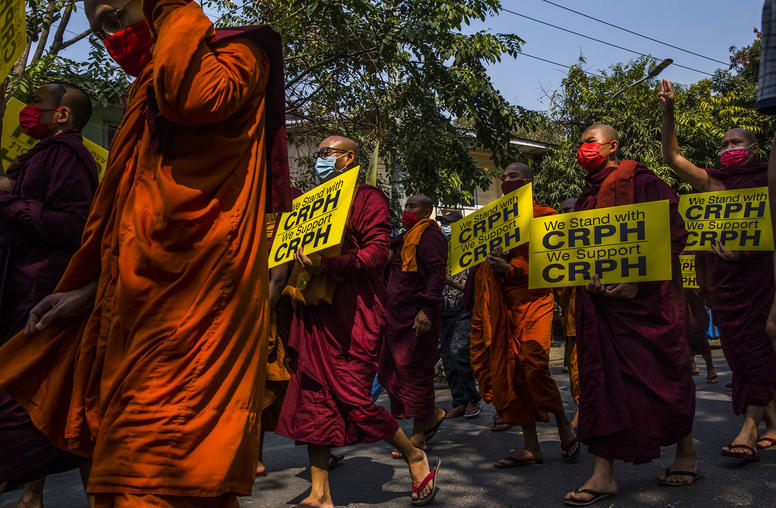
Myanmar Coup: Military Regime Seeks to Weaponize Religion
Ten months have passed since Myanmar’s military overthrew the country’s elected government, and by now it’s apparent that arrests, executions, torture and financial pressures will not pacify a population unwilling to be ruled by generals. So, the coup’s leader, Commander-in-Chief Min Aung Hlaing, is seeking to recast himself through military-controlled media. Rather than an autocrat who overturned the popular will, he portrays himself as the next in a long line of just and honorable Buddhist warrior-kings, monarchs who protected Buddhism from public apathy and external threats. The military is hoping that a barrage of religious propaganda can accomplish what force and violence have not.